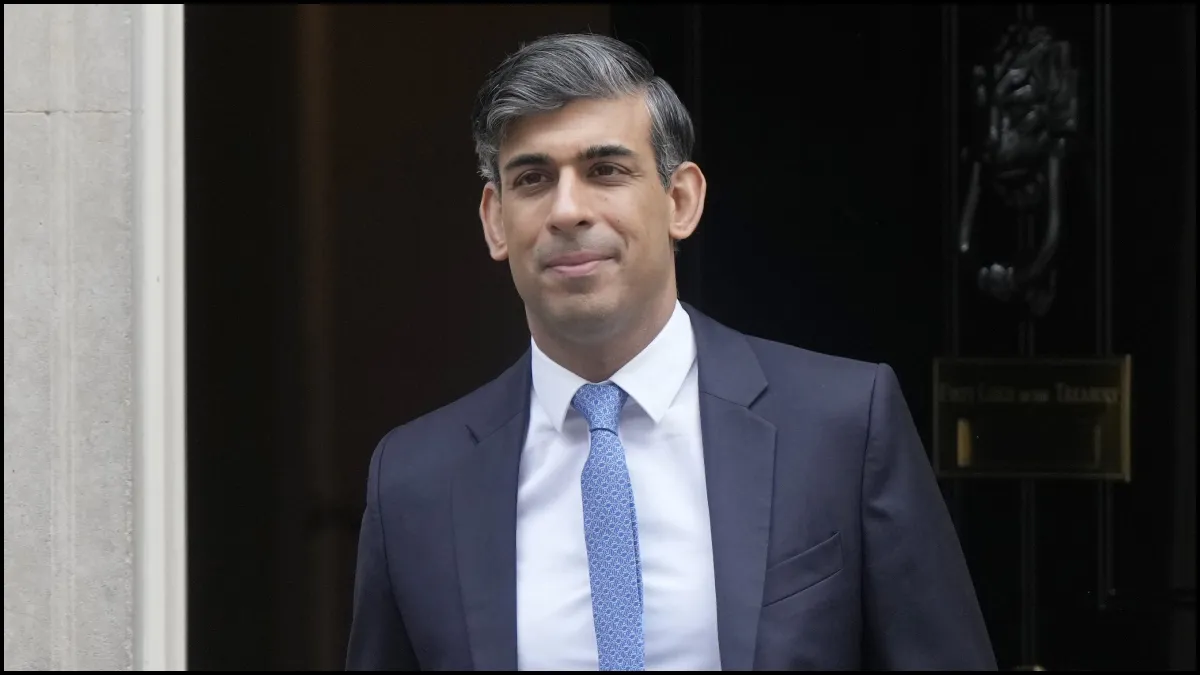London: British Prime Minister Rishi Sunak has called on the United Kingdom's police chiefs to use tougher action to ensure that protests are not allowed to descend into 'mob rule'. This comes in the wake of concerns of British MPs and some violent incidents during protests over the ongoing Israel-Hamas conflict in Gaza.
Speaking after a meeting at 10 Downing Street where ministers and senior police chiefs agreed to sign up to a new “democratic policing protocol”, Sunak said, "There is a growing consensus that mob rule is replacing democratic rule. And we’ve got to collectively, all of us, change that urgently. We simply cannot allow this pattern of increasingly violent and intimidatory behaviour which is, as far as anyone can see, intended to shout down free debate and stop elected representatives from doing their job. That is simply undemocratic."
The British Indian leader said it was right that the new protocol committed to extra patrols and provided clarity by stating that protests at the homes of MPs, councillors and other democratically elected representatives should be “generally considered to be intimidatory”. He said it was fundamental to democracy and vital for maintaining public confidence in the police.
Under the new seven-point policing protocol signed this week and backed by an extra 31 million pounds in government funding, police forces would be expected to ensure any events involving any MPs or candidates in the run-up to the general election expected later this year get an “appropriate police response”.
The prime minister met police chiefs after announcing a 31-million-pound ($40 million) fund to step up security for lawmakers after politicians reported threats and intimidation. The protocol makes clear that Section 42 of the UK’s Criminal Justice Act of 2001 gives police the right to direct protesters away from MPs’ homes on the basis that such demonstrations are “intimidatory”.
Critics say Sunak's approach 'exaggerated'
Some critics argued that the talk of 'mob rule' amounts to a wide exaggeration of the issue and risks undermining the rights of peaceful protest. This comes at a time when mass protests have drawn hundreds of thousands of people to central London almost weekly to call for a cease-fire in a conflict that has killed more than 30,000 Palestinians, according to the Gaza Health Ministry in the Hamas-run territory.
The protests have been overwhelmingly peaceful, though there have been dozens of arrests over signs and chants allegedly supporting Hamas, a banned organisation in Britain. Jewish organisations and many lawmakers say the mass marches have created an intimidating atmosphere for Jewish Londoners — though members of the Jewish community have been among those on pro-cease-fire marches.
Reports of both antisemitic and anti-Muslim abuse in Britain have soared since Hamas' Oct 7 attack on Israel and some lawmakers say they fear for their safety after receiving threats over their positions on the war. A debate last week in the House of Commons on whether to call for a cease-fire descended into chaos amid allegations the speaker of the house had bent parliamentary rules in response to pressure from pro-Palestinian activists.
During the debate, protesters projected “From the river to the sea, Palestine will be free” — a slogan some see as calling for the destruction of Israel — onto Parliament's Big Ben clocktower. This culminated into Sunak suspending Conservative lawmaker Lee Anderson from the party on Saturday for saying London Mayor Sadiq Khan, who is Muslim, was controlled by Islamists and had allowed them to take charge of the city.
Meanwhile, the Labour Party disowned its candidate, Azhar Ali, for claiming that Israel allowed Hamas' Oct 7 attack to happen as a pretext to invade Gaza. His name remains on the ballot, alongside candidates including George Galloway, a former Labour lawmaker who is campaigning against Labour's stance on the Israel-Hamas war.
Tightened restrictions on protests
British lawmakers have a tradition of meeting regularly with constituents in their local communities, but security has been tightened after several attacks in the last decade. In 2016, Labour lawmaker Jo Cox was killed by a far-right extremist, and Conservative David Amess was murdered in 2021 by an attacker inspired by the Islamic State group.
Sunak's comments follow several years of increasingly stringent restrictions on peaceful protest by the Conservative government. It has passed new laws to clamp down on broadly defined “public nuisance,” punishable by up to 10 years in prison, and giving police more powers to restrict protests judged to be disruptive. Hundreds of environmental activists have been arrested and sometimes jailed for blocking roads and other nonviolent acts.
(with inputs from agencies)

